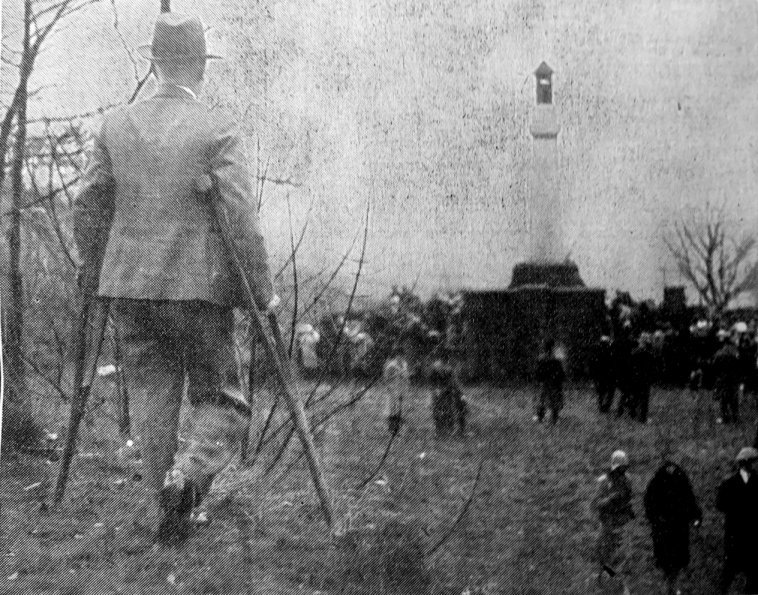South Yorkshire Times – Friday 18 November 1932
The Season of Remembrance
Swinton
The Power of Silence

More than usual interest was taken in the town Armistice service on Sunday morning, the first part of which was held in the Parish Church. A procession, marshalled by Mr. F. Jones, was formed at the old market place, and consisted of the Swinton Brass Band, police, the Chairman (Mr. F. Burns), and members and officials of the Urban District Council, the British Legion, Boy Scouts, Girl Guides, members of clubs, friendly societies, and ambulance units. The procession was met at Milton Street by the Parish Church choir and conducted to church.
A special form of service was conducted by the Vicar (Rev. T. G. Rogers), assisted by the Rev. C. Norton, and the band, conducted by Mr. Morton, accompanied the hymns. An innovation, at the request of the British Legion, was the reading of the Roll of Honour. The Lessons were read by Mr. F. Ward end Mr. S. J. Large,
The Vicar spoke from the text: “When he had opened the seventh seal there was silence in heaven about the space of half-an-hour.” (Rev. viii., 1). It often happened, he said, that men who conferred a great gift on their fellows were forgotten.
He regretted that he had forgotten the name of the man to whom they owed the idea of the Armisticetide silence. “That man certainly conferred on us a boon that we shall never forget.”
Silence was a wonderful thing. There were some people in the world who tried to make themselves felt by noise, but men and women of character could beat exert their power quietly. God was in the “still small voice.” The silence of Armistice misses its mark if it does not give us the opportunity. undisturbed, of praying that the gallant dead should not have died in vain.
At The Memorial.
The Vicar conducted the second portion of the service at the War Memorial, where a large crowd gathered. Following the hymn, “O God our help ; the Vicar offered several prayers, and the Lesson was read by Mr. F. it. Oliver (Methodist). The Rev. W. Harrison (Methodist) gave a brieLaddress.
During the singing of “For all the saints” wreaths were laid on the memorial on behalf of the United Ex-Service Men’s Club, the workmen of Hattersley’s Foundry, Swinton Church Scouts, the 1st Swinton Scouts, Swinton Girl Guides and Brownies, Baker and Bessemer’s employees, Swinton Urban District Council, Swinton Working Men’s Club, British Legion, and Swinton Parish Church. The service, which was attended by St. Michael’s choir as well us that of the Parish Church, concluded with the sounding of the Last Post and Reveille two minutes’ silence, prayers for peace by Mr. H. B. Greenwood Congregational), the Benediction by the Vicar, and the singing of the National Anthem.
In The Parish Church.
But a few residents attended the Armistice Day special service in the Parish Church, conducted by the vicar (Rev. T. G. Rogers), assisted by the Rev. R. W. L. Bedford. The Roll of Honour was read, special prayers were offered, and the hymn “O God, our Help” was sung. The service concluded at the Memorial, where the children of the National School and several other relatives gathered for the silence. Again prayers were said by the vicar, who also gave a short address. Afterwards the children and teachers went to the Parish Church for a service, this being the first occasion on which this has been done. The head teacher (Mr. F. Ward) read the lesson, “Let us now praise men,’ and the Vicar gave an address is which he said:
“The last thing we want is another war, but if there was I should be happy to think that we have not failed in teaching you children faithfulness towards your land. The best form of faithfulness. However, this in the world, is that which makes for peace. The children sang the 121st Psalm, and the hymns, “How bright these glorious spirits,” “O valiant hearts,” and “These things shall be,” and the National Anthem.